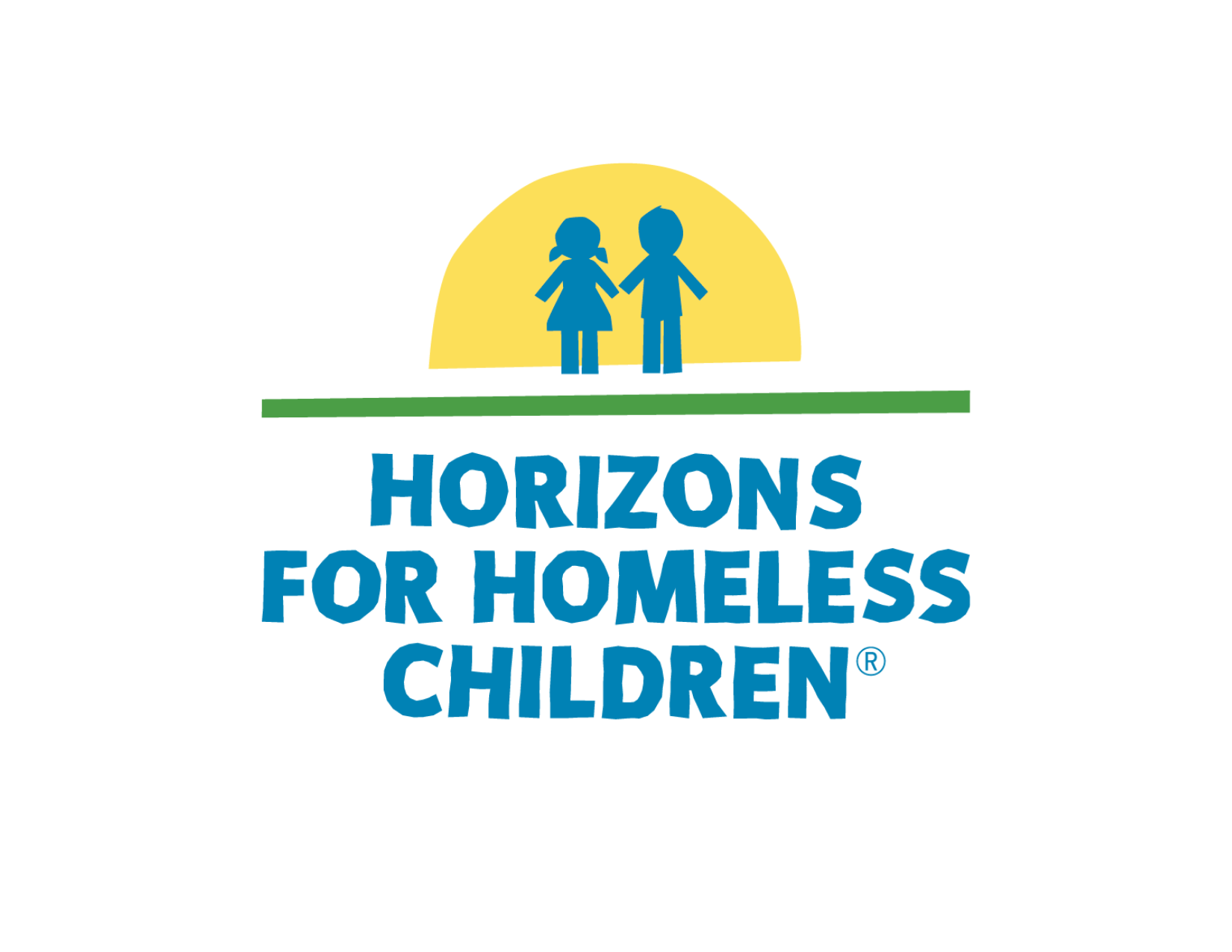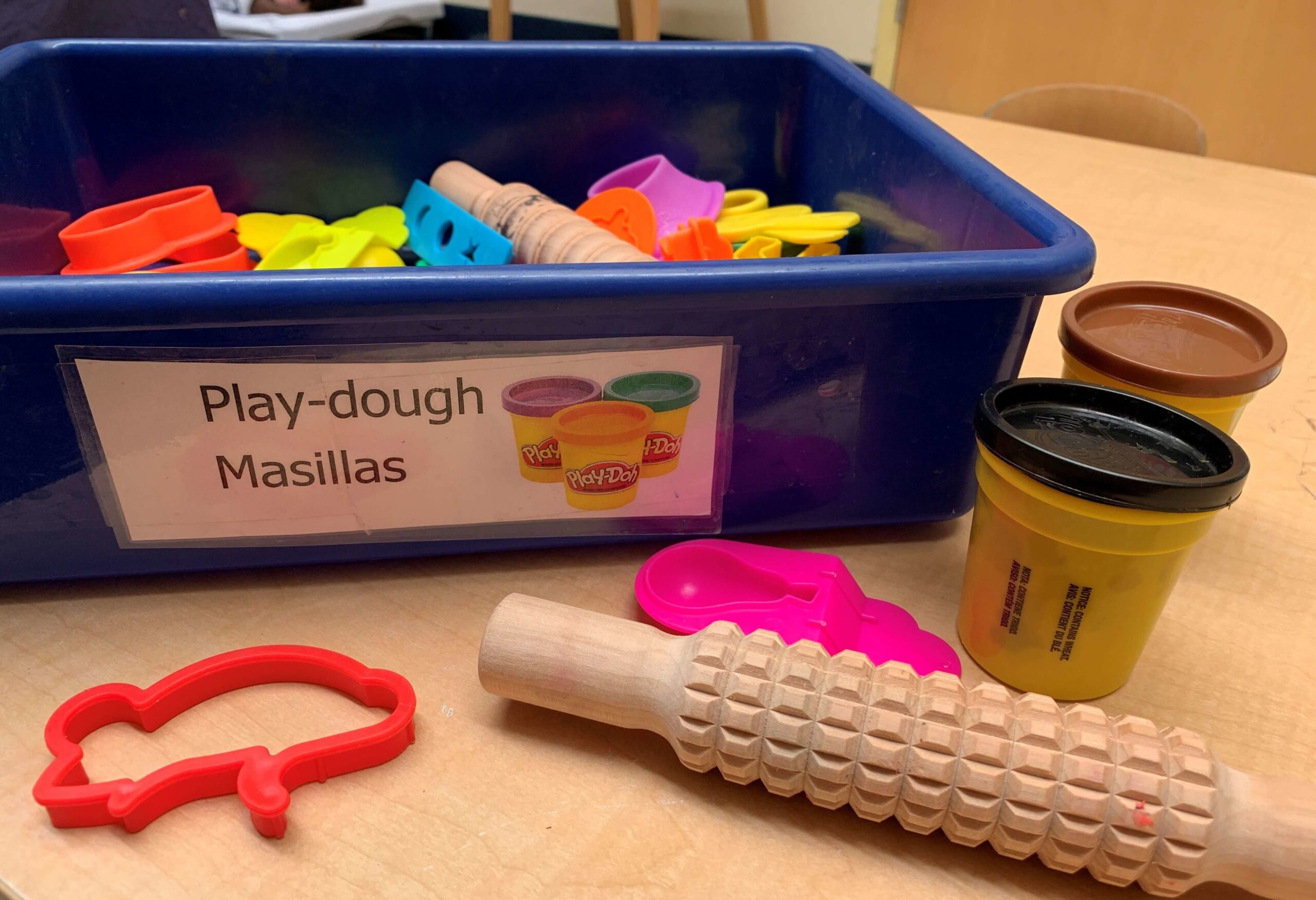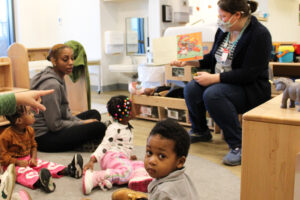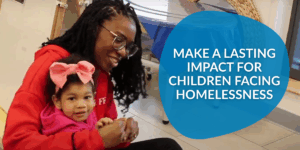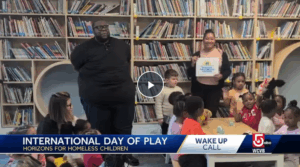Bilingual Breakthroughs
At Horizons, 36% of participating mothers and 28% of children are primarily Spanish speaking. From the perspective of our team, it is simply a must to communicate in our participants’ native tongue in order to immediately establish a connection.
Having bilingual advocates in the Family Partnership Program, as well as bilingual teachers in our Early Education centers, creates an enormous positive impact in our community.
Why is language so important?
I recently spoke with Sheila Restrepo, who has worked as a Lead Toddler Teacher and later as a Family Advocate at Horizons for 18 years.
“People relate with one another through language.”
As a Family Advocate she helps parents set and accomplish goals in different areas of life through Mobility Mentoring. These areas include family stability, financial management, employment and career management, education and training, and well-being.
Through these goals, parents can achieve stability within the uncertain environment that homelessness creates. Out of Sheila’s caseload, 21 out of 24 parents are Hispanic. Sheila’s ability to communicate with people in Spanish is a huge benefit for parents, especially when they arrive in Boston without proficiency in English.
Miraidis Munoz-Velez, a Family Advocate with Horizons for the past 6 years, also knows firsthand about the influence language has on building connections with families. She’s seen that families are joyful and relieved when they feel truly understood. This happens not just through language, but also through the culture within the language.
Imagine immigrating to another country. Someone offers to help you and not only speaks your language, but understands your cultural background. You immediately feel a connection with them. A foundation of trust and respect forms.
In Miraidis’ case, rapport is a top priority. In a way, the established cultural connection allows both for parents to identify with their advocates and for the advocate to serve as a role model. Participating families can see that Hispanics in Boston can thrive and work as positive members of the community. They realize that speaking Spanish is not a handicap, but a valuable skill. This is enormously encouraging.
Principles of trust and respect
Family Advocates work hard to build strong relationships with parents by creating a transparent and trusting environment. Parents in the Family Partnership Program have to sign many legal documents that are often exclusively in English. In cases where the parent speaks little to no English, they rely on the Family Advocate to translate and interpret for them.
“It is very difficult for the parents when they don’t know what they are signing, but at Horizons they can trust that we are telling them exactly what is on the paper,” says Sheila.
Working closely with bilingual Family Advocates like Sheila gives families a voice.
Breaking down the barriers
One of the mothers in our Family Partnership Program used to arrive at Horizons every morning in tears. It was heartbreaking. She just couldn’t communicate with her case manager at the shelter where she was living. Unfortunately, it is all too common that case managers at shelters have little to no knowledge of Spanish or languages other than English. They want to help, but may lack the tools.
The language barrier and cultural divide limited how effective she could be with her case manager. It was through her Family Advocate at Horizons that she was able to resolve the situation. Having a bilingual advocate was life-changing for her. Helping with the pressure of communication goes a long way.
Education, education, education
Having the opportunity to speak in their native language also allows parents to communicate directly with their children’s teachers. Elvia Godbout, who started working as a family advocate this January, explains that every classroom in the Early Education Centers has at least one teacher who speaks Spanish. This way, kids can practice two languages at the same time and address teachers depending on which language they can best express themselves in. When they listen to both languages throughout the day, they can learn both at the same rate.
A teacher noted, “There are studies that show that when kids learn more than one language at an early age, they tend to have more success in school in the cognition areas because new synapses are being created.”
Spanish speaking is fostered in classrooms through music, storytelling, and other group activities. Objects in classes are labelled in English and Spanish to facilitate learning of words in both languages. This strategy extends to the families, too. Horizons’ Family Advocates help motivate parents to learn English not only for their own professional development, but also for the future of their child’s education.
Connections outside the classroom
This past May, Horizons hosted its first “Desayuno Latino,” a monthly breakfast tailored to the Hispanic community. While the event is hosted in Spanish, all parents are welcome to participate. This community event encourages parents to have conversations that are culturally relevant. The top three topics in May were nutrition and health, immigration, and child development. At the monthly event, Spanish is spoken and Hispanic culture is celebrated through traditional breakfast foods, and music.
An investment in the future
Without a doubt, providing consistent exposure to different cultures prepares our participating kids to enter the world with more respect for other cultures and languages. Not only that, but being bilingual opens up many doors and opportunities for kids as they grow up. It is truly a life-long advantage.
And within our organization, having bilingual advocates creates an environment of empathy and understanding. It’s a more inclusive atmosphere, where everybody is recognized and respected. This is the future that we are building at Horizons.
This piece was written by Caterina Brescia, a summer intern visiting Boston from her home country of Peru.
